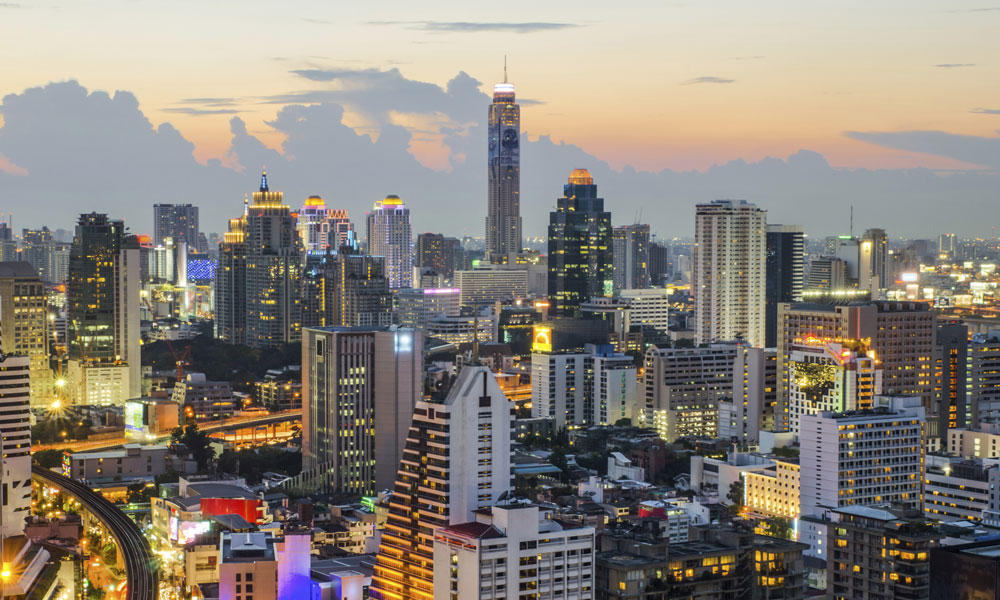
After Military Coup, Thai Tourism Industry Stays Upbeat
The worsening political situation in Thailand has hurt the country's massive tourism business. But the Thai Hotels Association says the military takeover could restore stability to the region, and other groups are cautiously optimistic.
Thailand’s recent political turbulence got even rougher this week, leaving one of the country’s biggest industries, tourism and business travel, dealing with the impact.
The Thai military staged a coup on Thursday and declared martial law, purportedly to stabilize the nation’s deteriorating political situation. In the wake of Thailand’s second military takeover in eight years (one of many in the country’s recent history), the travel and tourism industry has attempted to stay optimistic. More details:
It might look scary, and to outsiders it might sound violent, but if we look at it from another angle it should bring more security and peace, which should reassure tourists.
The impact so far: Since the declaration of martial law, several countries have issued travel alerts, including South Korea, Canada, the United States, and the United Kingdom. But even before the coup, political unrest was hurting tourism. According to the BBC, Thailand’s gross domestic product shrank by 2.1 percent in the first quarter of the year compared to the previous quarter, driven in part by the decline in tourism, which represents 10 percent of the country’s total economy. Meanwhile, Reuters reported, travel agents in countries that drive regional tourism to Thailand, such as Australia and Malaysia, have continued to recommend trips to destinations there outside of its volatile capital, Bangkok.
For those already there: The military imposed a curfew this week that applies to visitors as well as residents of the country, meaning that travelers must stay in their hotels between the hours of 10 p.m. and 5 a.m. until the martial law order is lifted. An exception has been allowed in the case of travelers heading to the airport. The Tourism Authority of Thailand, an industry trade group, has offered continual updates on its website throughout the unrest and advises visitors not to travel to protest hot spots.
The effect on business travel: With Bangkok a major hub for international business travel, the conventions industry is feeling some pressure. The Thailand Convention and Exhibition Bureau (TCEB) recently estimated that the country would see fewer than 1 million business travelers in 2014—despite a 14 percent increase in conferences in the first quarter alone. Speaking at IMEX 2014 in Frankfurt, Germany, TCEB President Nopparat Maythaveekulchai argued that high-quality business travelers were still showing up even as overall visitors declined. “There have been a few cancellations in meetings and incentives, but on the exhibition part there are no cancellations at all,” Maythaveekulchai said, according to Conference & Incentive Travel. “The quality of business traveller is more important than the number of people who come to Thailand, and we’ve put in place a policy to increase quality.”
Cautiously optimistic: For its part, the Thai Hotels Association—which represents an industry that has seen its fill rates drop precipitously in recent months—is cautiously optimistic that military rule will help stabilize the country. “It might look scary, and to outsiders it might sound violent, but if we look at it from another angle it should bring more security and peace, which should reassure tourists,” Supawan Tanomkieatipume, the group’s vice president, told Reuters.
The Tourism Council of Thailand, meanwhile, noted that the imposition of martial law will mean just another knock for the industry, which projects a 9 percent drop in arrivals between April and June from the same period last year.
“The martial law will have some impact on tourists, but this year is not a good year for tourism anyway because of the protracted unrest,” TCT Vice President Pornthip Hirunkate told the wire service.
Bangkok's central business district. (iStock/Thinkstock)






Comments